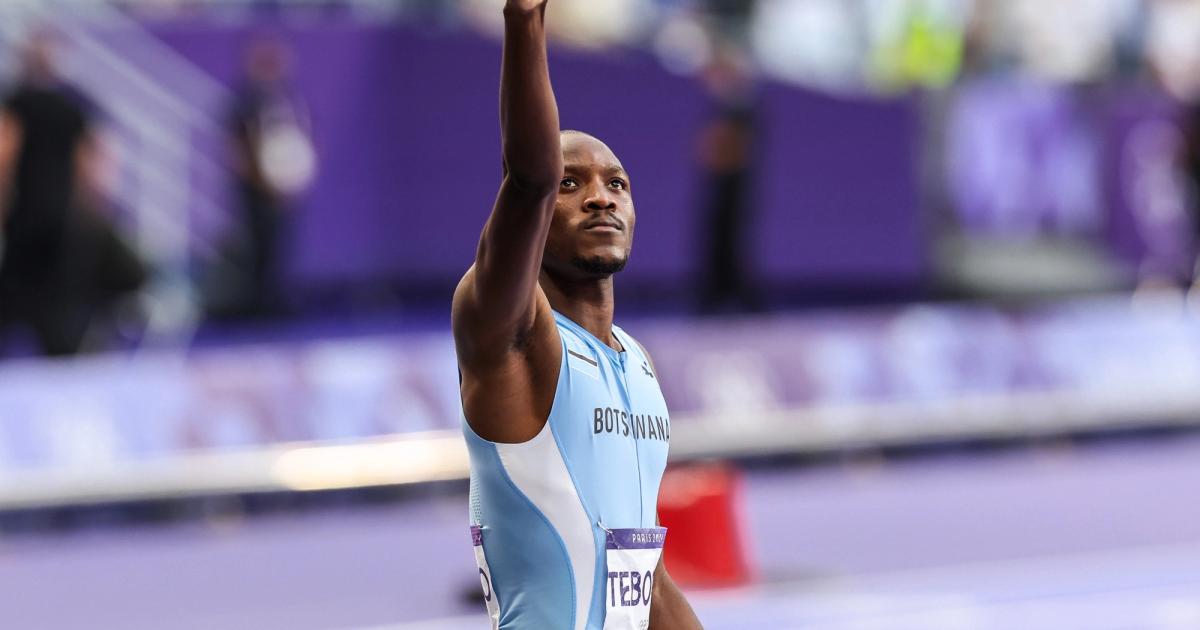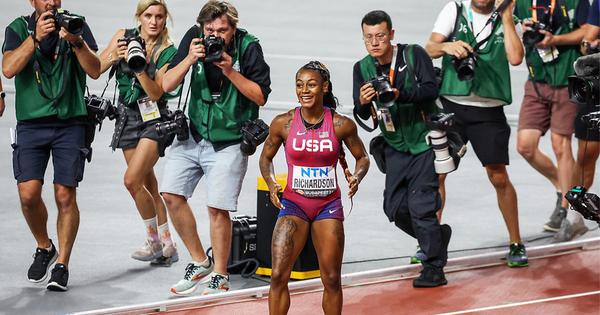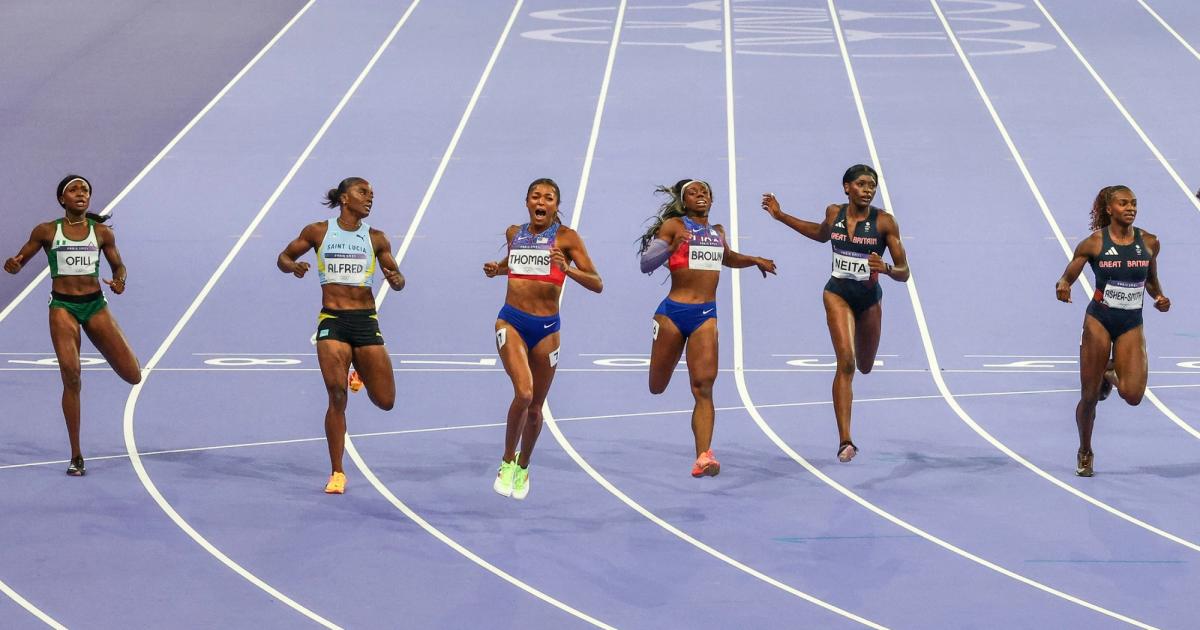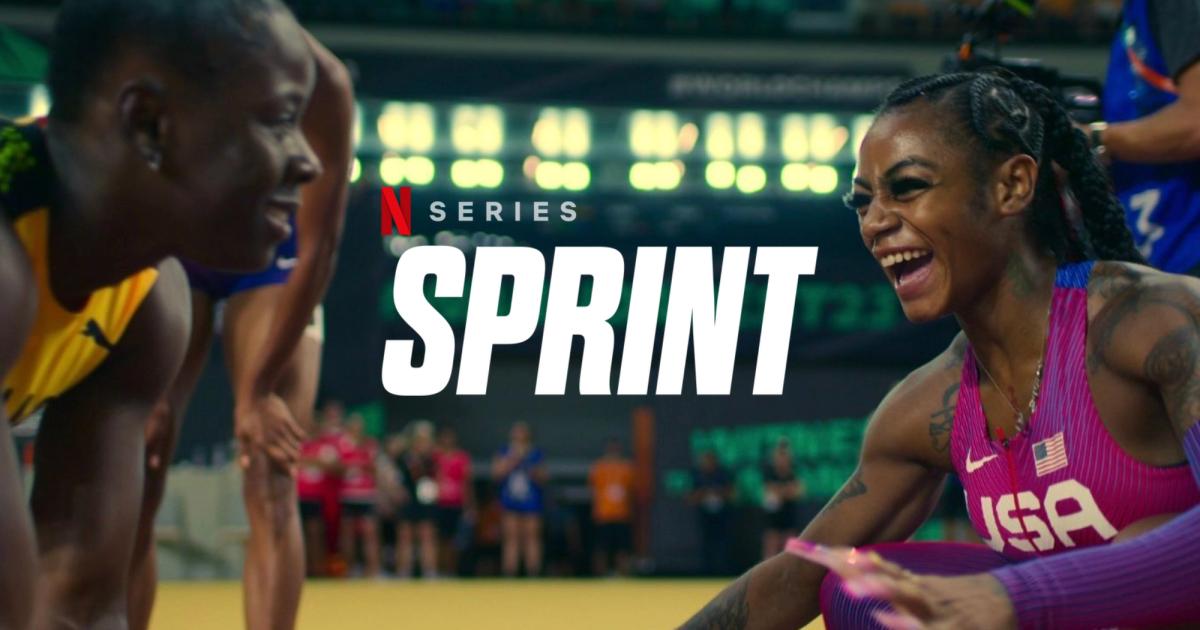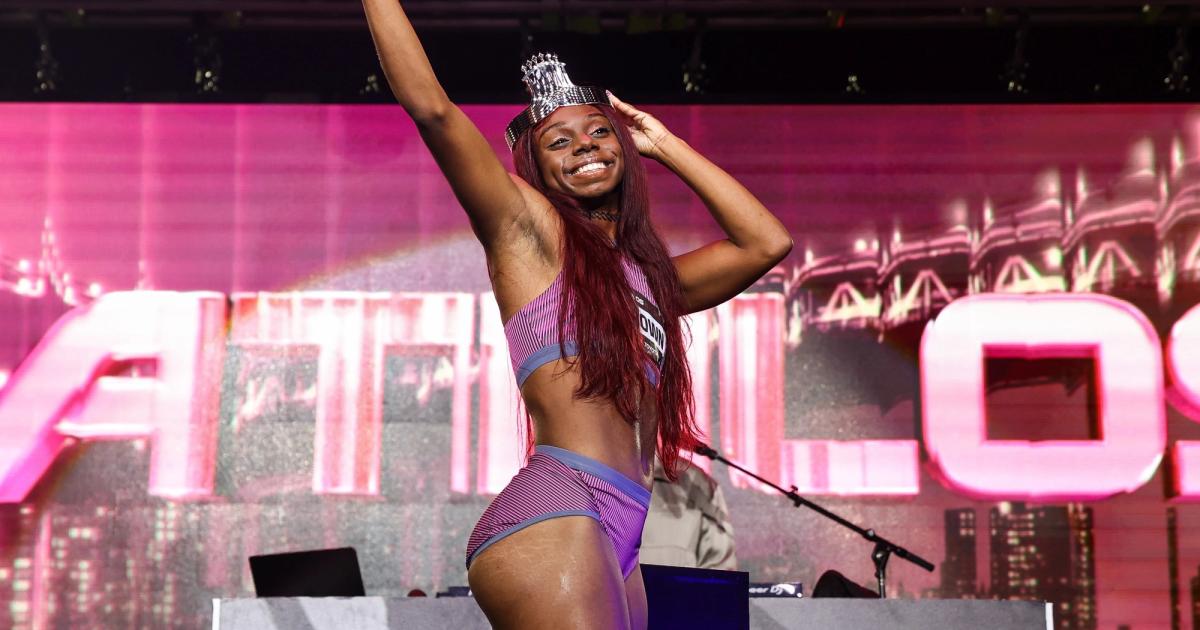By Anderson Emerole
November 20, 2024
I recently finished watching Season 2 of SPRINT on Netflix which was released on November 13th — following up on Season 1, which came out early in July this year to a ton of mixed, but generally positive, reactions.
This won’t be a comprehensive breakdown of every episode, as Citius Mag offers a fantastic episode-by-episode analysis of the show, which I highly recommend for a deeper dive. Instead, this piece will focus on my overall impressions of the season, particularly the highlights and missed opportunities that stood out to me.
Initial Expectations
I had seen some of the early reactions to Season 2 on Twitter and Instagram, and to be honest, I wasn’t expecting much as much of the feedback was negative, especially when compared to the success of Season 1. But after sitting down for Season 2, I actually found more highlights than online commentary had me expecting.
Highlights
Julien Alfred was one of, if not the top, highlight of season 2. I love they were able to highlight her growing up with nothing in Saint Lucia, her journey to meeting Coach Edrick Floreal at the University of Texas, and then going on to win her country’s first ever Olympic medals. Despite us track fans already knowing Julien, this was a well-deserved introduction to the world, considering she is very reserved, humble, and not as easily forthcoming as other athletes. I also love the inclusion of “Coach Flo”; we got even more of his personality and the support he provides to Julien. After watching season 2, it’s hard to not be a Julien Alfred fan, if you weren’t one already.
The additions of Letsile Tebogo, Oblique Seville, Kishane Thompson, and Kenny Bednarek were also very welcome, especially given the fact that their backstories are lesser known even to track fans. These are all relatively younger and newer guys on the scene, with Kenny being the most experienced at 25 years old throughout the 2024 season. All of these guys are relatively low-key in terms of their personalities, so introducing them to a slightly wider audience, knowing they will be competing on the track for years to come, was a very positive outcome.
Giving Fred Kerley more camera time is never a bad more, and season 2 got it right in my opinion. 2024 was a pivotal year for Fred coming off a poor performance at the 2023 Budapest World Championships, and he dealt with a ton of controversy throughout the year. In season 1 of SPRINT, he barely got much airtime, but this time around we got to see some of his struggles, as well as the aftermath of him winning 100m bronze, his second Olympic medal. Well done there.
The inclusion of Melissa Jefferson and Tee Tee Terry was another highlight. I feel as if Melissa and Tee Tee are both fan favorites in the track and field community, and so to have them spotlighted was great. It also allowed Netflix to paint a better picture of the talent in Dennis Mitchell’s Star Athletics group, which I don’t think was fully captured in season 1. And they could have easily made the decision to cut Tee Tee Terry out altogether since she didn't win an individual medal, so I’m glad they included both these ladies.
On top of that, we got to see Christian Coleman this time around. Even though he didn’t qualify for the Olympic team, I appreciated them showing a bit of his story and progression up to the Trials. I love that they contextualized Christian as one of the last active 100m guys to have competed with — and beaten — Usain Bolt in the 100m back at the 2017 World Championships.
This season’s spotlight on the coaches' personalities is something that needs to continue. SPRINT really takes you inside the connection and relationship that coaches and athletes have, which was by far my favorite part of season 1, so I love that they generally continued that here in season 2. The masterminds behind the Olympic sprint podiums included Edrick Floreal, coach Lance Brauman, coaches Stephen and Paul Francis from Jamaica, coach Tonja Buford Bailey, and even a little bit from Coach Dose, who works with Letsile Tebogo. And, of course, coach Dennis Mitchell, who was a big part of Sha’Carri Richardson’s narrative in season 1. Dennis not only had a bunch of athletes featured in Season 2, but I also felt like he was a connector to bring a lot of the storylines together.
Finally, although Noah Lyles and Gabby Thomas were the core stars of SPRINT, similar to Season 1, when I look back, I personally didn't feel like they overshadowed the other athletes this time around. The most memorable parts were the stories of Julien, the Jamaican men, Tebogo, Melissa, Kenny, and all the other new faces. I was hoping for more airtime for athletes not previously featured, and that’s what I got. Maybe that was Netflix’s intention to ensure other athletes got more spotlight — or possibly they needed to do a better job of making Noah and Gabby’s quests for gold more compelling this time around. I’ll be the first to say Noah’s COVID story in the final episode did seem a bit forced into the narrative and missed the mark for me.
Missed Opportunities
Now for as many highlights that I found, there were a few areas where Netflix missed the mark and could have done a much better job.
An easy one was to introduce Kenny Bednarek and Letsile Tebogo much earlier in the series. They both ran the Olympic 100m final, so at least part of their stories could have been told a bit earlier. One of my favorite scenes was after Kenny finished seventh in the 100m final and breaks down after, literally crying on Dennis Mitchell on the practice track. That was such a powerful scene, but the problem was Kenny was not introduced as a character at that point. They barely mentioned him making the U.S. 100m team at Trials and didn’t even cover the 200m at Trials, so viewers without a wider context can’t feel the weight of that moment.
Similarly, not introducing Letsile earlier was a huge missed opportunity. They could have easily opened the season with highlights of him winning 100m silver at the World Championships last year, then losing his mother in the middle of the 2024 season. That could lead into his failing to make the 100m Olympic podium and later redemption with 200m gold. To me, that is an easy layup of a year-long narrative, so it was very strange to only introduce him in the last half of the final episode which, unfortunately, seemed a bit rushed.
Fred Kerley’s story at the NYC Grand Prix was another missed opportunity. Though they did cover the false start controversy, it wasn’t clear from the episode alone that Fred had a relatively sub-par start to the season and NYC was literally the last meet before Trials. While that context is important, they didn't necessarily need to go into the details of his Asics sponsorship or his wearing Puma spikes at the meet. That nuance hits harder with diehard track fans and probably isn’t a huge story a casual viewer. But they could have easily focused on the stakes of the last meet before Olympic Trials, when Fred was arguably a long shot to even make the team at that point.
I also took issue with how they contextualized Shericka Jackson’s struggles through the year. I did appreciate the continued insight into Shericka’s life in the lead up to Trials and at the Olympic Games — one of my favorite scenes was her walking off the practice track to the bus while the meet official is calling her name for the 200m heats. But it was strange how they did not talk about her struggles at all until the Olympics.
Again, this could have been an easy layup for Netflix. Earlier in the summer, she struggled to get going and even lost a 200m race right before the Olympic Trials in Oslo. That raised the question of if she would be ready to qualify for the Olympic team. Then, at Trials, she lost her 100m semi-final, and even in the final, she was behind Tia Clayton and Shelly-Ann Fraser-Pryce for about half the race. That could have easily been highlighted as a comeback victory to qualify for the Olympics. Afterward, a brief highlight of her pulling up in the Hungary Continental Tour meet could have provided at least a little table-setting for eventually pulling out of the 100m and 200m in Paris.
Finally, I think there was an opportunity to highlight Shelly-Ann Fraser-Pryce as, similar to Shericka, there was no context around her struggles leading up to Jamaican Trials. Rather than focusing on the negative, Netflix could have sold the story of her also being in questionable form, but overcoming injury to qualify for what would be her final Olympic Games. Though I would have loved to get more details around why she pulled out of the 100m semis in Paris, I also recognize that could have been tougher to get info from the Fraser-Pryce camp. But there was a much bigger story they could’ve told in the leadup to that moment.
Conclusion
Overall, in my personal opinion, Season 2 was great. And though I don't know if it was as great as season 1, I actually appreciated season 2 more because of the focus on so many new faces who not only had success this year, but are also on the rise and have very compelling stories – Kishane, Oblique, Letsile, Julien, Kenny, Melissa, and more. I think the combination of the two seasons was effective in introducing casual fans to to the sport and its stars.
And remember, that’s the goal for Netflix, not covering every intricate detail for us diehard fans. We may never be fully satisfied by a documentary like this. I want the stories of Brittany Brown, Akani Simbine, Marie-Jose Talou-Smith, Erriyon Knighton, and a bunch of other athletes to be told. We want all the details of every race to be shown to provide full context. But that's not how things work when trying to present a well-packaged story to the wider public who barely knows about the sport (Believe me— my favorite event is the triple jump). I’m literally never going to be 100% happy with how the sport is presented, but if SPRINT season 2 opens the door for more fans to eventually one day become diehards like me, it’s done its job.

Anderson Emerole
Anderson Emerole is an analyst and contributor to CITIUS MAG. He runs The Final Leg, a YouTube channel with up-to-date commentary on track and field news.
